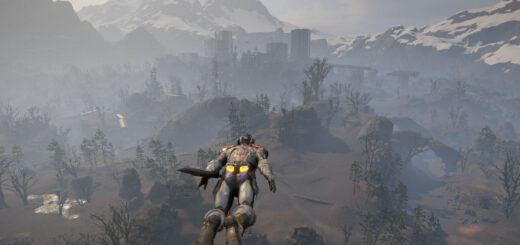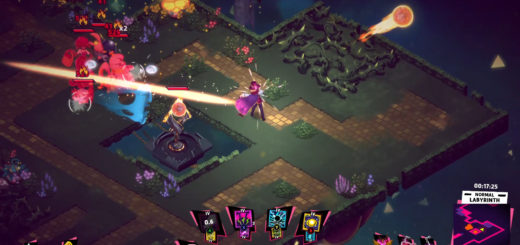Hero Must Die, Again, in This Impression
Back in the day, about two years ago, I picked up a PlayStation Vita secondhand. It was a questionable decision from the start, as three of the games I wanted to play on it had yet to even be released, and the fourth was sold out at that store. This was how the first game I bought and played on my Vita ended up being Yuusha Shisu HERO MUST DIE, because it was available. The reason I’m bringing this up now is because a new version of this game, entitled Hero Must Die. Again, has been announced for a 2020 release on the Nintendo Switch, PlayStation 4, and Steam. Will it be significantly different from the version I played on the Vita? Probably not, though there are some specifics we could hope for.
But first, let’s look at the game’s history, for it is both weird and indicative of what sort of experience it is intended to bring. In its original form, the one which I originally reported on in Japandemonium back in 2009, Yuusha Shisu was a cell phone title. It was designed with the typical Tokyo commute in mind, with a single playthrough taking about half an hour. The Vita version takes more time to get through, relatively speaking, but it’s still a game intended for multiple replays. The original designer (Masuda Shoji of Oreshika and Linda3 fame and/or infamy) is one of those guys who likes high-concept, avant-garde genre deconstructions, and it shows from the start.
Which is to say, the start of this game’s story is the end of another, as the Hero faces off against his mortal foe the Dark Lord™ in a fateful and fatal duel atop the Fortress of Darkness. The Dark Lord™ is vanquished. The Hero does not survive the experience… or does he? For his great valor and compassion, an angel appears unto him as his soul lies in limbo. The gods have decided to grant him a literal grace period of five days. That’s one hundred twenty hours to travel the kingdom, tie up any loose ends, say his farewells, and then drop dead. Again.
This is not enough time to do everything, especially on the first time through, and the game is geared for that. The ending scenes and credits can vary wildly depending on the Hero’s actions in those five days and which (if any) of the game’s love interests are pursued. This affects where the eventual funeral is held, how many citizens attend, who gives the eulogies, and how many attendees cry. The game even keeps a record of the numbers, for future comparison with later games. And at the very end, the player is treated with a future chronicle laying out just how the kingdom’s history was altered by those five days of grace.
(For what it’s worth, the official screenshots look identical to the Vita version)
The ending is only the start to the ways the concepts and conceits of this game’s design philosophy influence play. On the mechanical side, there’s the fact that the Hero begins his grace period in his prime, at level 99 with all spells learned and stats maxed out, only to experience a gradual and inexorable degradation as his final hours approach. Resting at an inn can minimize the progression of the effects, but that loses the Hero precious hours before he eventually drops dead.
One’s choice of party members can be critical, especially around the time the Hero forgets his handy teleportation spell. The exact roster expands as the game is repeated, with certain characters only appearing on subsequent playthroughs. The same is true of the romance options, as the One True Love ending, wherein the Hero is reunited with the beloved whose name and face he can’t even recall because of brain trauma, is only possible from the fourth time onward. It’s worth repeating that this is a game built on the concept of short turnarounds and variety, and the attempt is made to ensure that subsequent adventures provide some novelty of experience.
Levels and locales are all presented in a side view, much like titles such as Valkyrie Profile, and the biggest complaint to be had with this game is that it does not take advantage of this by including even the least bit of platforming, which would have added some interesting elements to the game’s explorative side. It’s completely possible that the new version will expand into this, but it’s not likely.
Hero Must Die. Again is predicated on its brevity and limitations, but that also gives the player greater agency with their choices. Is it worth the effort to hunt down one last demon? Will a particular route get the Hero to the destination faster, but at the cost of something else? Will he end ethnic strife, right wrongs, marry the princess, or just sit on his butt for five days doing nothing but fish off the town bridge (and getting a game trophy for it)? There is so much to do, and so little time do it, which is what makes the adventure.











Recent Comments